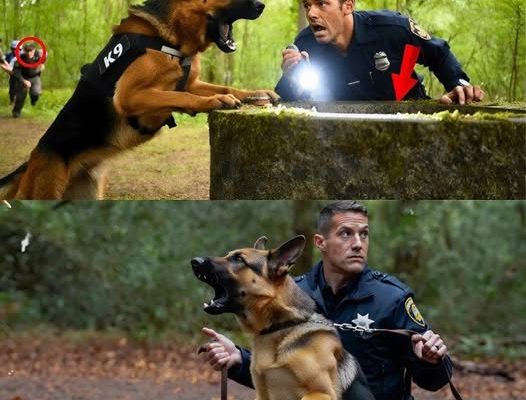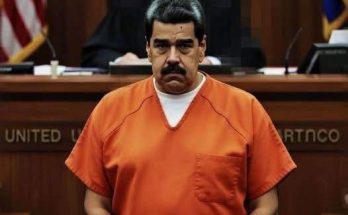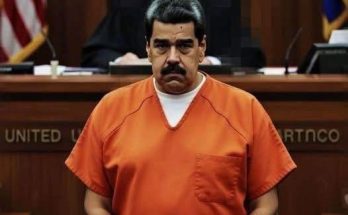The Well That Would Not Be Forgotten
The first bark barely caught Officer Morgan’s attention as he walked Missouri’s leaf-littered woodland path. Ranger, his K9 partner, could let out a bark sometimes if a squirrel rustled through the brush, but the second bark made Morgan pause. The third bark, though—a deep, urgent rumble—made the hairs on the back of his neck stand up in warning. Ranger wasn’t the type to bark for nothing.
Early autumn sunlight filtered through pines, sending dawn’s beams over Morgan’s boots. The trail, grown wild, had once been used by hunters and maybe old farmers, long before new development plans threatened to change everything. Yet Morgan’s assignment was simple: morning stretches for the K9, maybe a check for poachers. Nothing should’ve felt strange. But as they stopped, Ranger wouldn’t leave the rim of a crumbling stone well.
“Easy, bud,” Morgan said, but Ranger only whined low, ears forward, body rigid. The well looked ancient—hand-laid stones slicked with lichen, a rotted wooden beam above holding a rusted chain. Something lived in the darkness at its heart, or maybe something waited.

Morgan’s flashlight cut into the blackness below, swallowed after a dozen feet by wet, chilling silence. No sound, no obvious echo, just the breath of cold air. Maybe an animal, Morgan thought, but even he felt his voice wobble. Instead of leaving, Ranger leaned dangerously forward and barked with conviction.
Out came the little inspection camera—standard kit for the strange days. Morgan wound it down, eyes locked on the grainy live feed. Stone. Earth. Then, a flicker—something moved in the blackness. He stopped, heart thumping. Static, then the unmistakable tap-tap-tap: three short knocks, then silence.
Protocol said radio it in. Nothing urgent, just suspicious movement and animal behavior—enough for an afternoon inspection, dispatch promised. But Morgan’s instincts burned. “What if there’s someone down there?” he murmured as he circled the spot with Ranger, unable to leave.
When the rescue team arrived in the waning sunlight, they lowered the probe, registering a faint heat signature at nearly 50 feet. All chatter on site fell quiet. Could anyone have survived down there? Ranger barked hard, once.
What they pulled from the hole an hour later stunned even the old-timers—a thin, mud-soaked man, clutching a photo of a woman and a little girl. His name? Lucas Trent. A journalist, missing nine years. Last seen reporting on illegal land grabs. Now blinking in the sunlight, gaunt, afraid, whispering the only three letters anyone in that hole could have believed in: SOS.
Lucas’s reappearance cracked open Cold Water’s hidden history. Every officer in the tiny station whispered now. Did someone bury him alive? What had he been investigating? Why, after all these years, did Ranger refuse to leave this patch of ground?
That night, Morgan replayed those knocks over and over and scrawled three short dots—Morse code for SOS—onto his report. He pieced together Lucas’s story in the flicker of police lights and coffee cups. Cold Water’s ugly underbelly was older and darker than anyone thought. And somewhere, in the hush of a traumatized man’s stare, Morgan found resolve.
The next afternoon, Morgan led the team back into the trees, this time with a full squad. Officer Dany, who grew up here, spotted a trampled camp by the well and unearthed a rusted container—Lucas’s press badge and a warped tape recorder, the film inside still undeveloped. The voice on the tape—a younger, nervous Lucas—spoke in whispers of meetings about zoning corruption, illegal money, and a friend named Franklin Ellis, another local gone missing.
Parcel 47B. That’s what the tape said—a place sold in secret, then forgotten. The officers followed the trail to an abandoned Baptist camp. In the cellar below the chapel, the bleach stung their noses before floodlights revealed chains driven into the concrete, ratty blankets, and a forbidden folder stuffed with surveillance photos and dirty cash receipts.
In the hospital, Morgan pressed Lucas for answers. “There are more places,” Lucas whispered, wild-eyed. “I heard them say: three wells, three silos. One for each of us.” Chills ran through Morgan as he mapped the pattern—forgotten locations in the county, each deliberately erased from current records. As dawn broke, Morgan and Dany stood before a shuttered grain silo. Ranger’s nose pointed to a recently used trap door. Inside, they found another man: Franklin Ellis, alive, barely, chained and starved for years.
Soon enough, another storage locker—Unit 12B—turned up Gary Phelps, missing contractor, hunched chair, and a feverish recording: “If someone finds this…I was taken. Silence is safety.” Three professions—journalist, official, contractor—all punished for exposing secrets.
Each clue pointed upward, past petty criminals and local bribes, toward someone orchestrating decades of silence. The common thread? A former mayor named Earl Bowman. On the surface, he was untouchable—war veteran, charity man, community leader. But as the investigation circled him, taxes and deed transfers cued suspicion. At a public event, Ranger’s reaction proved it—nose high, body locked, tail rigid. Ranger had smelled guilt.
Before dawn, SWAT swept a decommissioned water treatment plant owned by Bowman’s nonprofit. Below, six men were found, locked in closet-sized rooms, all reported missing over two decades. One had been a teacher, another a postal worker, all “noisy men,” as the files described them.
In the aftermath, news vans lined the police station. Bowman was arrested with a strange, resigned smile. The truth unspooled from there—dirty land deals, officials bought off, lives ruined or erased. The dog’s refusal to walk away had dug it all up.
As the dust settled, Morgan found himself at a quiet cemetery outside town, Ranger at his side. Beneath a stone for Ron Whitaker—the “seventh” victim, a whistleblower scientist—Morgan knelt, leaving a Cold Water PD pin at the grave. “No one’s going to forget anymore,” he promised quietly, stroking Ranger’s now-graying ears.
Ranger was made a hero; the well in the woods became a memorial garden. Morgan traded his badge for quieter work: helping troubled veterans with animals like Ranger, who understood loyalty and pain.
In the months that followed, Cold Water finally began to heal. The school taught history with new honesty. Neighborhoods learned to listen when someone barked a little louder, or stuck out for the truth. “Hey, you’re the guy with that hero dog, right?” folks would say at the post office. “No,” Morgan always replied, heart bursting with pride. “I’m just the guy who kept up.”
And each evening, as the sun faded over the wheat, Ranger curled up on the porch. Morgan would scratch behind his ears and whisper, “We did good, buddy.” For the first time in a long time, he believed him.
“Sometimes the only voice speaking the truth can’t speak at all. Would you stop and listen, like Morgan did? Or walk away like everyone else?”
Thank you for believing in the heroism of those who never stop digging—muddy paws and all.









